As the incessant rain continued to tumble from the leaden skies above Gothenburg, and the drenched players cavorted around the sodden pitch, one after the other holding the gleaming silver trophy aloft, high up in the stands the realisation began to sink in.
We had just watched our team beat the mighty Real Madrid in a European final; the Dons had won the Cup Winners’ Cup.
The magnitude of that achievement seems even greater in the present day. Four decades on, no other side has emulated what Alex Ferguson’s team did that night; the Spanish giants have not lost in the ten major European finals they have subsequently contested.
Of course, lifting silverware was somewhat routine to Aberdeen in the 1980s. Having got a taste for it by winning the 1979-80 Premier Division title, they were now serial winners and the dominant force in the domestic game.
Taking the continent by storm was, however, even for them, a whole new ball game.
I will be forever grateful that I was in the Ullevi Stadium that night. Working in the bank, as I did back then, I was able to procure a personal loan, officially recorded as having been granted to buy a carpet and a fridge. Each monthly repayment over the next two years was a nice reminder of that night in Sweden.
Having financed the trip, I had to work out how to get there, and having missed out on the St Clair ferry, which was already fully booked, flying was the only other option. I had never previously left these shores, was terrified by the very thought of getting on a plane, but even that fear was not going to prevent me from being able to say, “I was there.”
It was to be the most memorable of jaunts, one which will live with me always.
The obvious topic for a book
By autumn 2011, I had long since left behind my spell as a banker and had spent a quarter of a century forging a career in broadcasting. During that time, I had developed relationships with a number of my heroes, the men in red I had the privilege of watching over many years. Some were friends, others simply occasional interviewees, and one or two I had met for the first time putting together a radio documentary marking the 10th anniversary of Gothenburg, or working on projects for the club.
So, when I was approached by a literary agent asking if I had ever considered writing a book, the 30-year celebration of that triumph – at that point some 18 months away – seemed the obvious subject matter.
We quickly secured a publisher, and I took my first tentative steps into what was a very different world for me, but one which was to give me perhaps the most enjoyable and satisfying task I have taken on at work.
I call it work, but it consisted largely of texting and calling a list of Gothenburg Greats, arranging meeting times, then sitting chatting with them for hours on end as they relived what was for most, the greatest time of their playing careers.
Some still lived locally, others were in the central belt, and there were trips down south to record the thoughts of the likes of Gordon Strachan, Mark McGhee and Eric Black. Everyone I contacted gave freely and willingly of their time; they could not have been more helpful or accommodating.
The hardest of all to track down was cult hero Doug Rougvie. He had at that time been working abroad and no-one was able to help me with a number. A quick post on social media came up trumps, Dougie was now back home and working in the city, and I was supplied with his direct office line. The two hours I spent with the big man were the most expletive-packed of my life, but the stories he had to tell! I even managed to print some of them.
The most entertaining chat was, as you might imagine, with the sadly missed Neale Cooper, who reeled off a litany of tales, many of which involved him in the role of mischief-maker. He must have driven the manager mad at times, but his exploits were tolerated because of what he brought to the team. He was an outstanding player, and an even better man, and his all too untimely death was genuinely deeply mourned by all who knew him.
Apart from the obvious names, I caught up with a few others, guys who might only have appeared fleetingly during that period, but who played their parts, as I felt it important to offer as rounded and complete a story as possible.
Richard Gordon on ‘the one that got away’ for Gothenburg book
The one man I did not get was Sir Alex. Having gone through official channels, I received a polite refusal from Manchester United which pointed out he was inundated with such requests on a weekly basis. I have since got to know the great man, have worked various events with him, and would now be able to secure such an interview, but back then I simply had to leave it.
Instead, I gathered thoughts on ‘Fergie’ from everyone else I spoke to, and while his chapter would obviously have benefitted from his direct contribution, I feel the others offered up enough to make it a worthwhile and detailed read.
While I had lived through that era, and felt I knew it inside out, I was also well aware that I needed to do some research, and the obvious place to start was trawling through the Press and Journal and Evening Express archives. The days I spent in the Aberdeen City Library were both invaluable to the project, and an absolute joy, and threw up many interesting nuggets.
Chief among those was the contract dispute which might have seen Willie Miller leave the club in the summer of 1982. After much wrangling, the captain eventually agreed a new deal; had he not, the history of the club might have been very different. The discussions, which were protracted, were over the princely sum of £10 a week!
Anyone who has listened to me over the decades will know I love a stat, and the research for the book threw up one which had me double- and triple-checking it before convincing myself it was authentic.
The team which kicked-off the final against Real Madrid had never previously been selected by Alex Ferguson as a starting eleven. It would only be chosen on one other occasion, ten days later in the Scottish Cup Final win over Rangers. That blew me away!
It was largely down to the absence through injury of Stuart Kennedy, and ten of the players had regularly started matches, but never before the full complement. The most illustrious team in the club’s history, and it only took to the field on two separate occasions.
Writing the book was a personal journey for me, and it proved to be an emotional experience as it got me thinking deeply about my late Dad, who introduced me to the game, and a school friend, Phil Goodbrand, who died in the stadium that night.
There were a few tears along the way, but plenty laughs too, and I left it all with a renewed appreciation of a remarkable group.
Three decades on, they still moved me, as the following passage, at end of the book, clearly demonstrates: “They were no longer those youthful energetic men careering across the pitch. Waists and bellies have thickened, hips have been replaced and hair has either been lost or gone grey. Joints have stiffened and memories have dimmed.
“But get them talking about that time, about that team, and the eyes sparkle and the smiles broaden, and they are hurled back into that dressing room, pulling on those famous red strips, readying themselves for battle.
“One last word from Fergie, there’s a rumble, a growl of determination, and the dressing room door is flung open and out they go, up that tunnel, out on to the Pittodrie turf and the cheers of the adoring Aberdeen fans…”
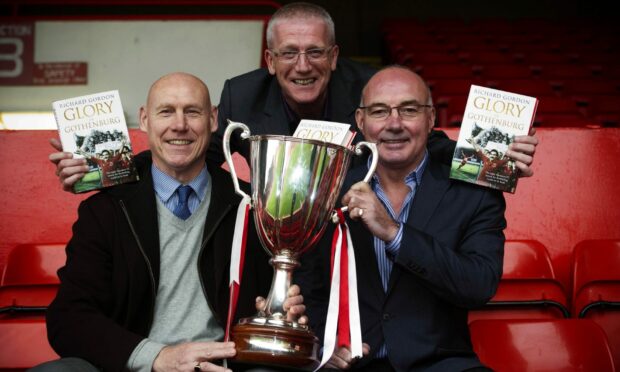
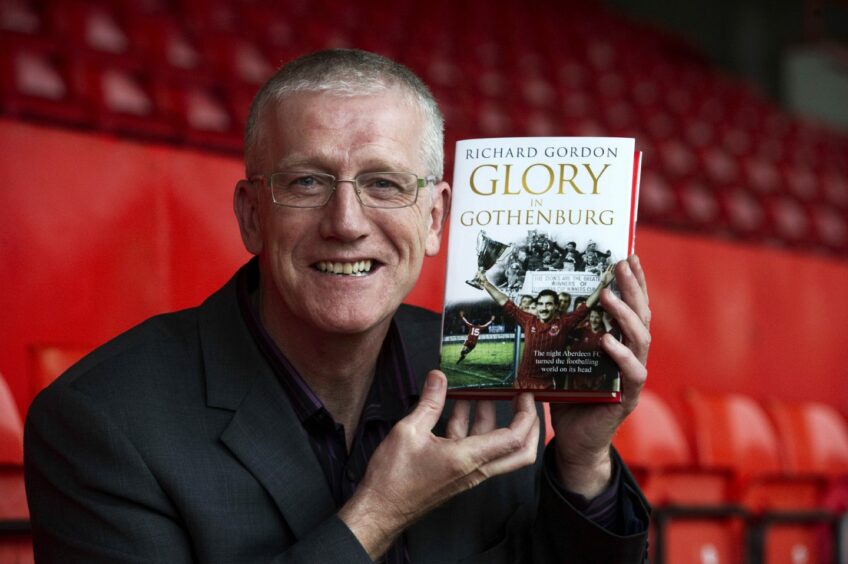
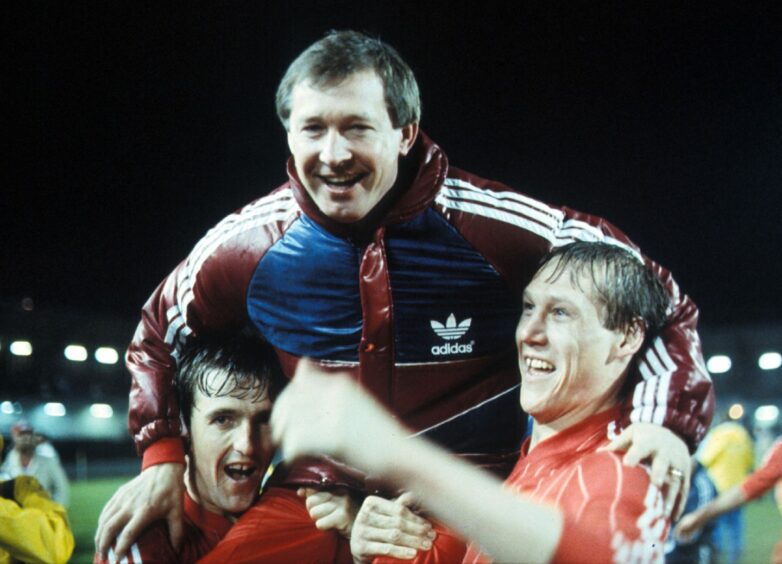
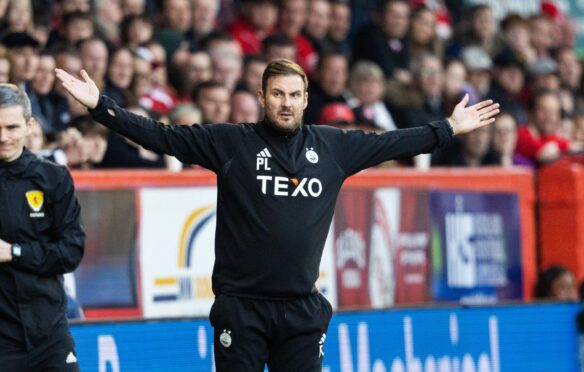
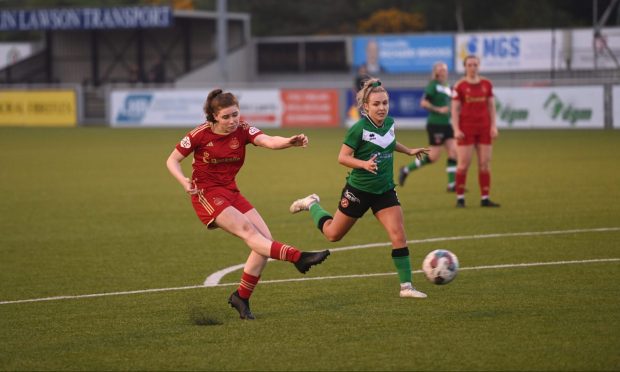
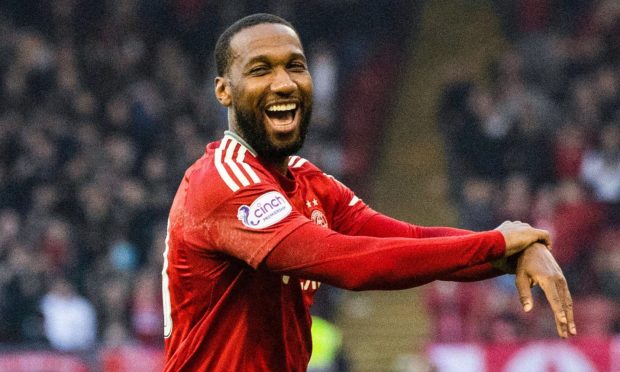
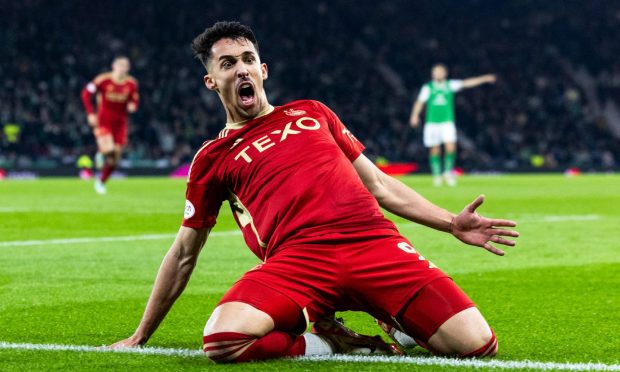
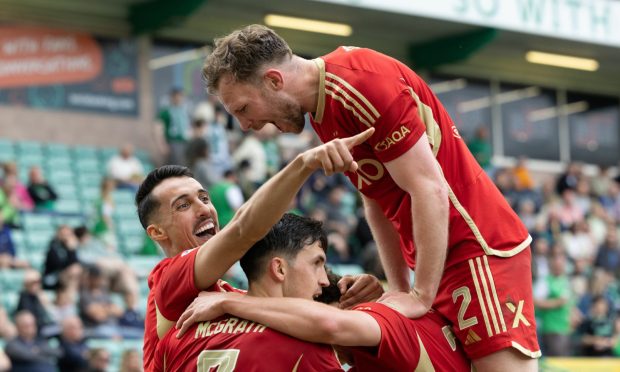
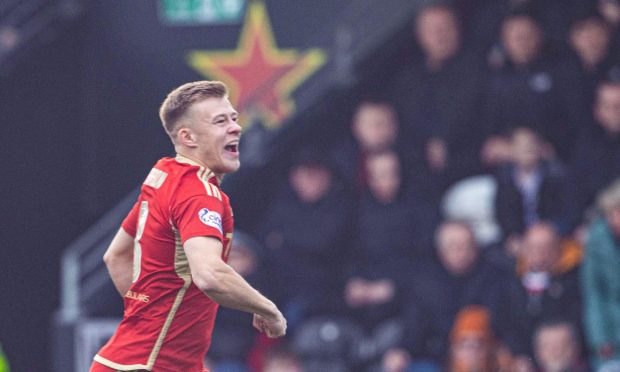
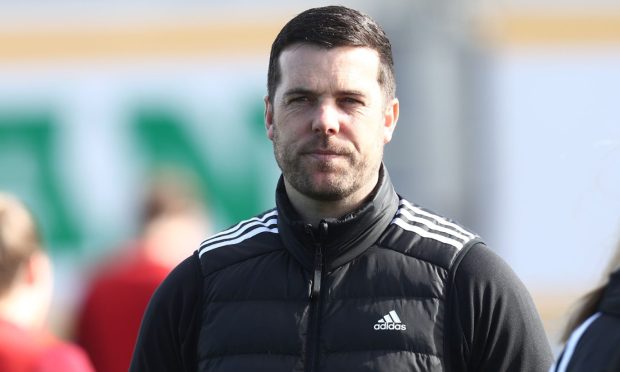
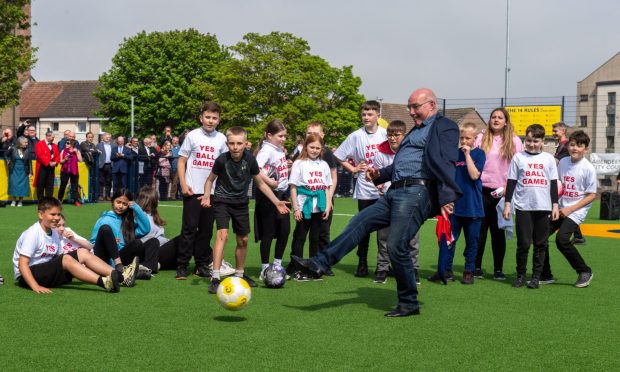
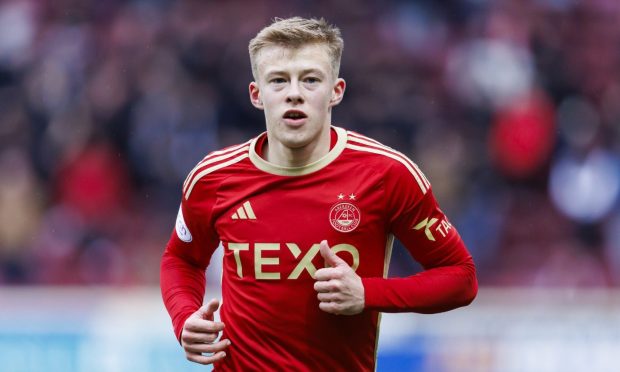
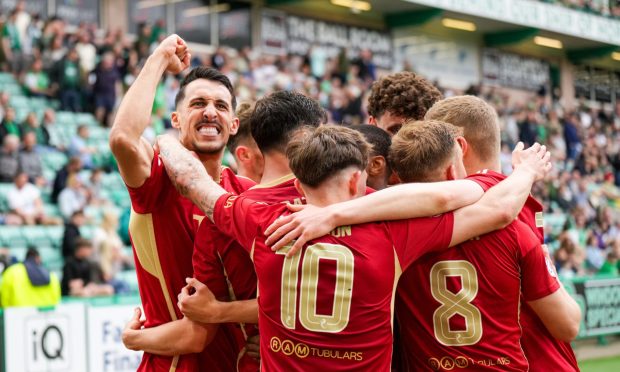
Conversation